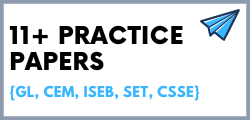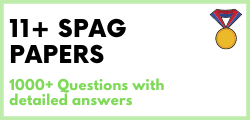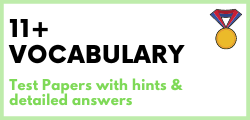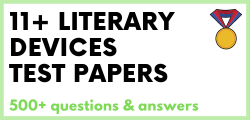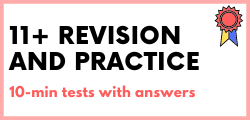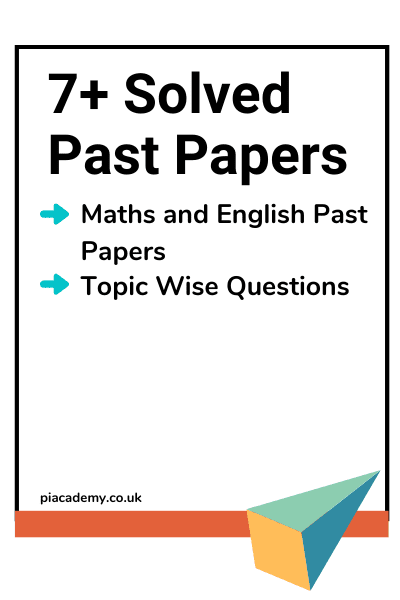As a parent of Primary-School-aged child, you will undoubtedly have some questions about the SATs tests which your child will be sitting in both key stage 1 and key stage 2.
KS2 SATs will take place in Year 6 ( KS2 Year 6 ) and KS1 SATs will take place in Year 2 ( KS1 Year 2 ).
In Key Stage 1 (KS1) and Key Stage 2 (KS2) schools will follow the national curriculum, and special assessment will take place which is called as ‘SATS Exams’. The SATs test their pupils’ knowledge required at the end of Year 2 and Year 6.
Well, you’re in luck, as we are here to sum all of this up for you!
You may be wondering:
- What are SATs? And What does SATs stand for?
- What is in the SAT test?
- How and when should you prepare?
- What is the pass mark for SATs?
- First off, What are the SATs? and What does SATs stand for?
- Year 2 SATs Papers vs Year 6 SATs Papers
- So what is covered by the SATs exams?
- The Specifics of the Papers
- How and when should you prepare?
- How should you approach SATs revision with your child?
- You may be wondering: What is the pass mark for SATs?
.
First off, What are the SATs? and What does SATs stand for?
SAT stands for Standard Assessment Tests. These tests are administered by primary schools to pupils in Year 2 and Year 6. This means that throughout their time at Primary School, your child will face both KS1 SATs papers and KS2 SATs papers.
These tests are compulsory for every school and will help to judge the children’s progress. Children sit the tests at school, but they are set and marked by the Standards and Testing Agency.
Year 2 SATs Papers vs Year 6 SATs Papers
What are the differences between the SATs papers KS1 and the SATs papers KS2? Well, in Year 6 (at the age of 11) children are tested on slightly more than they encountered in Year 2 (at the age of 7). The KS2 SATs papers material will be around 50% based on what the children learned in Year 6, whilst the rest will cover Years 3, 4, and 5. The KS1 SATs papers, on the other hand, focuses on the early years of learning. (The main topic of this article will be the KS2 SATs papers, so stay tuned if your child is in Year 6!)
So what is covered by the SATs exams?
Before testing time (May 2020!) rolls around, you should know what is in the SAT test…
In KS1 children are tested on the following:
- Reading
- Maths
In KS2 your child will be tested on these subjects:
- Reading
- Spelling, Punctuation, and Grammar (you may hear this referred to as ‘SPaG’!)
- Maths
As well as these subjects, your child will be issued a more casual form of testing known as teacher assessment. It is through this means that speaking, listening, writing, and sometimes science, will be assessed, both in Year 2 and Year 6. The official testing will consist only of Maths SATs papers and Reading and SPaG SATs papers.
It is important to remember that, though the KS2 SATs results are often partially used by Secondary Schools to aid the composition of sets for English and Maths (a combined effort with Year 7 CAT exams), the true purpose of the SATs papers is to test the performance of schools. The SATs results help Ofsted in their managing of schools, as well as going towards published league tables. (They are not there to judge your children!)
The Specifics of the Papers
In KS1 your child will have completed 6 papers for their SATs tests: 4 English-based, 2 Maths-based.
Similarly, in KS2 your child can expect the following 6 tests:
- SPaG Test 1 – testing Grammar and Punctuation, the test will last for 45 minutes
- SPaG Test 2 – the Spelling test, this will last for 20 minutes
- Reading Test – one paper, with questions based on passages of text, lasting 60 minutes
- Maths Test 1 – Arithmetic based questions, the test lasts for 30 minutes
- Maths Test 2 – mathematical Reasoning based questions, this test lasts for 40 minutes
- Maths Test 3 – the second mathematical Reasoning paper, again lasts for 40 minutes
All children across the country are required to take the tests on the same day. The dates for the KS2 SATs 2020 tests have been released and are as follows:
Monday 11th May: SPaG Paper 1 and SPaG Paper 2
Tuesday 12th May: Reading Paper
Wednesday 13th May: Maths Paper 1 and Maths Paper 2
Thursday 14th May: Maths Paper 3
How and when should you prepare?
When should you start preparing your child for the Year 6 SATs Papers 2020? Now! It is never to early to start revising and getting your young one ready for their KS2 SATs papers…
How should you approach SATs revision with your child?
Well, as the old adage goes: practice makes perfect! Now is the perfect time to practice a revision skill which will come in handy throughout the entire duration of your child’s educational career – use past SATs papers and SATs practice papers.
Using SATs past papers will allow you and your child to become acquainted with the exam, meaning that you will know what to expect when it comes time for the official exams to be completed – an invaluable asset. Be sure to make use of all of the resources which are available on our site, free SATs papers and SATs tests online are an easy and sure-fire way to kick-start your SATs revision. You will see that we have examples of both Maths KS2 SATS papers and English past papers to help you cover all bases and be ready to approach every paper listed above.
As well as SATs past papers (which will have been completed as the official exam by Year 6 children in previous years), the Standards and Testing Agency also released sample papers. Although there have not been samples released ahead of the SATs paper 2020, you can still access official 2016 SATs practice papers.
SAT past papers, though useful, may become tedious if this is all you do to revise. Try to make things more fun to keep your child interested. Read aloud together, make a game out of mental maths, hold a faux-spelling bee at home… There are countless ways to make revision more exciting and more enjoyable (for you as well as your child!); working together and explaining things aloud are proven ways to aid memory and retention of learning. Similarly, you can think about using colours and images for a more visual learner – perhaps make revision posters together and stick them on your child’s bedroom wall! Leaners can be categorised into three main types, these are: visual leaners, auditory learners, and kinaesthetic (physical) learners. If you can find ways to incorporate each of these learning types into your revision schedule, not only will this enable you to find out what works best for your child, but you will undoubtedly increase their chances of remembering what you have gone over together when they sit down to face their Year 6 SATs papers (it will also break up the monotony of what may otherwise seem like endless revision, which is great for everyone involved)!
Good luck!
Good luck to you and your child as you face the SATs exams in 2020. Remember, schools do their utmost to make the experience pleasant for their pupils and the tests should not cause too much worry!
You may be wondering: What is the pass mark for SATs?
Rather than having a pass mark per say, there is a national Expected Standard. From the raw mark of their papers, a ‘Scaled Score’ will be calculated for your child. The Expected Standard for the Scaled Score is at least 100/120; a scaled score which amounts to 99 or less is considered to not be meeting the Expected Standard. However, as mentioned earlier, keep in mind that this is not a ‘fail’, these tests are intended to gauge the school more than they are your child! There are no detrimental effects of receiving a SATs score which is below the Expected Standard.











